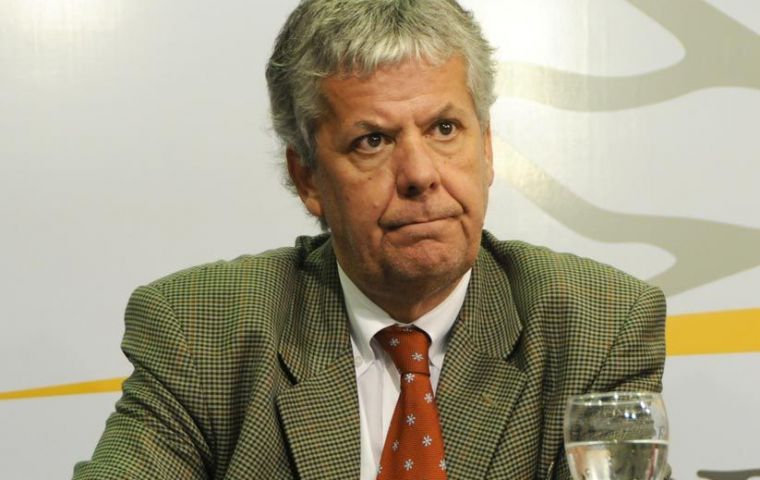MercoPress. South Atlantic News Agency
IMF recommends ending fiscal stimulus before turning to capital controls
 Nicolas Eyzaguirre, IMF Western Hemisphere director.
Nicolas Eyzaguirre, IMF Western Hemisphere director. Latin American policy makers should withdraw fiscal and monetary stimulus to prevent their economies from overheating before turning to capital controls to limit foreign currency inflows, said Nicolas Eyzaguirre, the International Monetary Fund Western Hemisphere director.
Governments should first end programs used to bolster economic growth during the financial crisis two years ago and central bankers need to raise interest rates that are low compared with their historic averages, Eyzaguirre said at the Inter-American Development Bank’s annual meeting in Calgary, Canada.
“If you remain in a stimulus mood and add that with what’s coming in from abroad, through high commodity prices and very easy financing conditions, you won’t have enough strength to stop the overheating,” he told reporters. “You cannot mitigate -- through macro regulation, capital controls or monetary policy -- the strength of these push factors”.
Nations including Brazil and Colombia are trying to curb gains in their currencies, which hurts the competitiveness of their exports, and fight inflation after near-zero borrowing costs in advanced economies such as the U.S. and Japan spurred demand for higher-yielding assets in emerging markets. Colombia’s central bank said Feb. 25 it will extend daily dollar purchases in the local market for at least three more months. Brazil has raised taxes on foreign purchases of bonds and stocks.
Some capital controls can be useful when foreign currency inflows become excessive and create extortions in the economy, Eyzaguirre said.
“Capital controls could be perfectly considered as a tool,” he said. “When tailwinds are very strong you should consider in your policy toolkit as many policies as you can because when these push factors are strong enough you may not afford constraining yourself to the most traditional ones.”
Most Latin American governments have not fully withdrawn stimulus to levels before the financial crisis, while their economies have recovered and are running with little idle capacity, he said. Regional growth should slow this year compared with 2010, he added.
Economic growth in the region will slow to 4.5% this year from 6.1% in 2010 as inflation and rising interest rates curb expansion, the Institute of International Finance, IFF, said Saturday in Calgary.
“(IMF Managing Director) Strauss Kahn told the region’s finance ministers at a meeting that IMF is not against the use of some capital controls to curb currency appreciation, marking a divergence from 20 years of macro-economic philosophy”, revealed Juan Carlos Echeverry, Colombia’s finance minister.
“There are reasons to be suspicious about capital controls” Echeverry admitted. “In the Americas we have diversity of size and development. What we have learnt is that there are no one-size-fits-all measures”.




Top Comments
Disclaimer & comment rulesCommenting for this story is now closed.
If you have a Facebook account, become a fan and comment on our Facebook Page!